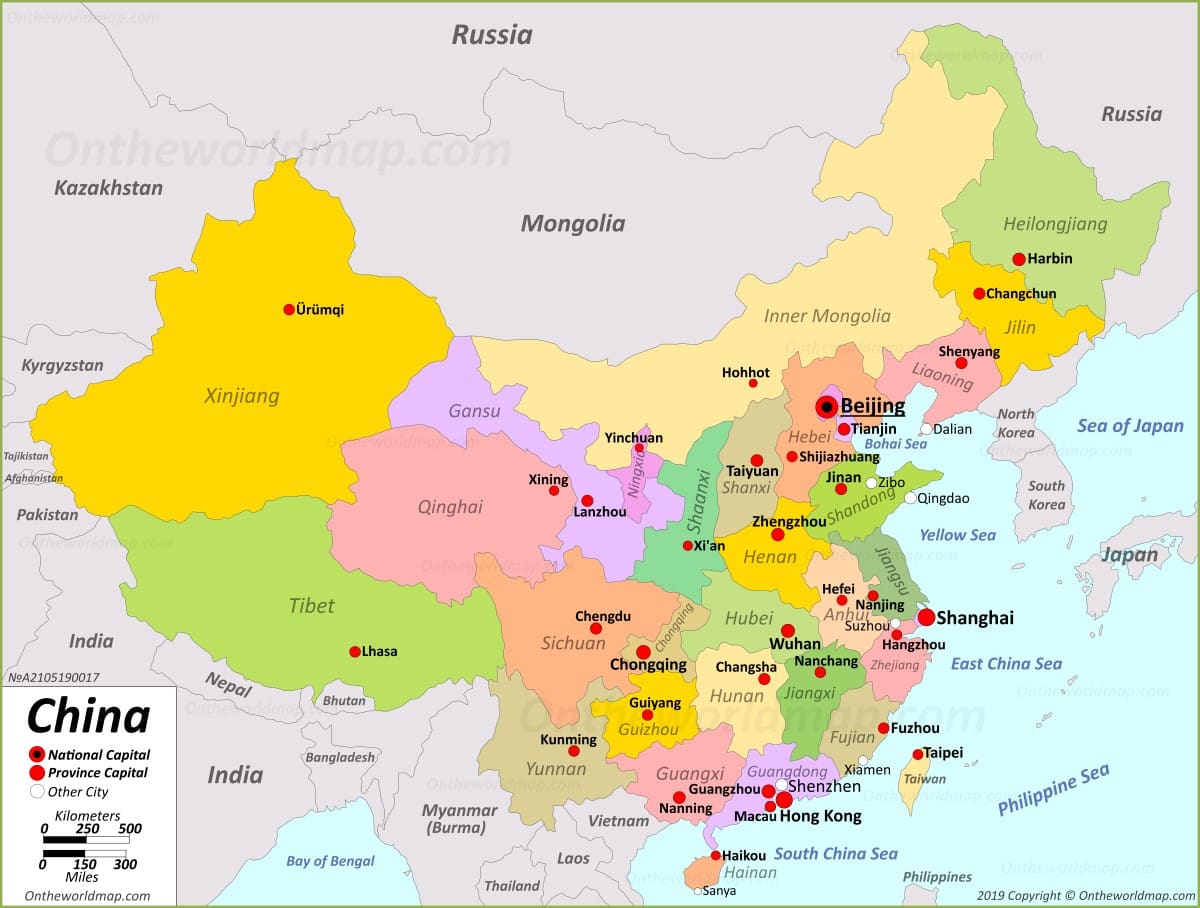To observers and experts alike, the United States’ Taiwan policy is as clear as Joe Biden’s dementia babble.
That said, Biden’s episodes of word salad have not prevented him from pledging to defend Taiwan from a Chinese invasion. In fact, since his presidency began, he has promised to do so at least three times.
These seemingly definitive statements did not add clarity to U.S. policy–which since 1979 has been described as “strategic ambiguity.”
In August 2021, Biden stated that, much like a NATO Article 5 obligation, the U.S. has a “sacred” commitment to defend Taiwan.
A few months later, at an October 2021 CNN town hall, Biden was asked if the U.S. would defend Taiwan from a Chinese attack. He affirmed, stating “yes, we have a commitment to do that.”
In May 2022, during his first presidential visit to Japan, Biden was asked if the U.S. would “get involved militarily” if China invaded Taiwan. Biden answered “yes…[t]hat’s the commitment we made.”
After each of these statements, White House staff swooped in to perform damage control, reiterating that U.S. policy has not departed from the Taiwan Relations Act of 1979–a piece of legislation that Biden himself voted to pass. Due in part to its vagueness, the law marked the beginning of “strategic ambiguity.”
Since the Taiwan Relations Act of 1979, the United States has followed the “one-China” policy, meaning it does not recognize Taiwan as an independent nation. Accordingly, the United States has not maintained official diplomatic relations with Taiwan since its passage. Through these decades, however, the U.S. has regularly provided weapons and, more recently, training to Taiwan’s military. The U.S. has also “informally” engaged in diplomacy with Taiwanese officials.
Despite emphatic assurances from White House staffers that U.S. policy remains unchanged, many openly wondered if Biden’s statements marked either an actual or a de facto repudiation of the Taiwan Relations Act. In other words, a transition from “strategic ambiguity” to “strategic clarity.”
Given the potential significance of Biden’s repudiation of “strategic ambiguity,” one might expect an escalatory reaction from China. However, in each circumstance, save one, Beijing responded with just words.
In August 2021, Chinese Foreign Ministry Spokesperson Hua Chunying advised that Biden’s statement “appeared to be a slip of the tongue.” She then reiterated China’s plumb line: “Taiwan is an inalienable part of China’s territory. The one-China principle is a red and bottom line that cannot be crossed. China must and will be reunified.”
Even though Biden’s October 2021 statement coincided with a massive $750 million dollar arms sale to Taiwan, China did not respond with military action. Instead, Chinese Foreign Ministry spokesperson Wang Wenbin reiterated the “one-China” principle. He also hinted at the type of U.S. behavior that elicits a more serious Chinese response:
We urge the U.S. to earnestly abide by the one-China principle and stipulations in the three China-U.S. joint communiques, be prudent with its words and actions on the Taiwan question, and avoid sending wrong signals to the “Taiwan independence” separatist forces, lest it should seriously damage China-U.S. relations and peace and stability across the Taiwan Strait.
In contrast to the first two pledges, Biden’s May 23, 2022 promise did earn a more serious reaction from Beijing, which quickly organized air and naval drills near Taiwan.
The People’s Liberation Army (PLA) official who announced the drills, however, did not cite Biden’s pledge as the reason for the drills. Rather, the official denounced “collusion between Taiwan and the United States” and expressed China’s intention of preventing “Taiwan independence.”
China’s reaction to Biden’s May 23 pledge showcases the type of U.S. actions that tend to provoke a military response. Indeed, historically, it is not rhetoric or arms sales that inflame the Taiwan quagmire into crisis, it is diplomatic recognition of and support for Taiwanese sovereignty.
On May 23, 2022, it was not Biden’s pledge that provoked the drills, it was the fact that Biden made the pledge during a banner diplomatic visit to Asia. The primary objective of the visit was to deter China from reunifying with Taiwan by furthering regional U.S. military partnerships with Japan, South Korea, Australia, and India.
Another case study: in 2001, President George W. Bush suggested the U.S. would defend Taiwan. In that case, China did not respond militarily. Ironically, then-Senator Joe Biden penned an op-ed in the Washington Post excoriating W. Bush for the gaffe. He called the commitment “startling.”
A further example: in May of 1995, Congress passed a resolution urging President Clinton to issue a visa to then-Taiwanese president Lee Teng-hui. The vote came after Lee was refused entry and detained by the U.S. military when his plane stopped to refuel in Hawaii. Clinton abided by the vote and issued Lee a visa to speak at Cornell University, his alma mater, in June 1995.
Clinton’s decision not only to issue Lee a visa, but to allow Lee to deliver the speech, infuriated Chinese leadership. Adding insult to injury, Lee’s speech suggested Taiwanese independence. Lee was received by several members of Congress and throngs of Americans waving the Taiwanese flag. To China, the event granted an immense amount of diplomatic legitimacy to Taiwan as a sovereign nation.
China responded by conducting months of live-fire military exercises near Taiwan. In late July 1995, the PLA launched a barrage of surface-to-surface missiles that splashed down within 100 miles of the coast of Taiwan. The U.S. then sailed several warships through the Strait of Taiwan.
In late 1995 and early 1996, talks between the nations failed and the PLA countered. It amassed 150,000 soldiers on its side of the strait, in Fujian province, and launched a second missile barrage in February 1996. The second barrage landed even closer to Taiwan than the first. The U.S. responded in March 1996 by ordering two aircraft carrier battle groups to the waters surrounding Taiwan. China then launched a third set of missiles, which landed within 25 to 35 nautical miles of Taiwanese ports Keelung and Kaohsiung. After this alarming climax, a series of diplomatic visits managed to deescalate the confrontation.
The entire event became known in the United States as the “Third Taiwan Strait Crisis.”
The first two crises occurred in 1954-55 and 1958, respectively. Although these crises did not occur during the era of “strategic ambiguity,” they too began with Chinese reactions to U.S. recognitions of Taiwanese sovereignty. The first crisis occurred after the U.S. deployed forces in defense of Taiwan during the Korean War. The U.S. then passed the “Formosa Resolution.” The resolution gave President Eisenhower the complete authority to defend Taiwan and the surrounding off-shore islands. The second crisis followed shortly after a series of failed Sino-American diplomatic meetings which occurred from 1954 through December 1957. During the meetings, the U.S. “pressed for a non aggression pledge with regard to Taiwan.”
In recent years, as a part of its policy of “great power competition” with Russia and China, the U.S. has frequently dispatched diplomatic delegations to Taiwan. Many of these delegations have met directly with Taiwanese president Tsai Ing-wen. The delegations often rouse a PLA response.
House Speaker Nancy Pelosi is set to lead a similar U.S. delegation this August. The visit will mark “the first time in 25 years that a sitting House speaker visited Taiwan since Newt Gingrich made the trip in 1997.”
On Saturday, the Washington Post reported that White House officials fear Pelosi’s planned visit to Taiwan could “spark a major crisis across the Taiwan Strait” and that “the White House and an array of national security officials have briefed Pelosi and her team about the risks of traveling now.”
White House officials may believe that Pelosi’s trip is imprudent, but they clearly do not reject its underlying policy. Instead, the officials’ main concern is that the trip is not prudent right now.
Antiwar.com news editor Dave DeCamp notes that the White House could be establishing its own lifeline if the visit were to ignite a crisis. Indeed, the Washington Post certainly attempts to distance the White House from Pelosi’s potential decision, underscoring that Biden cannot tell Speaker Pelosi what to do. This is communicated with phrases like: “everyone understands that this is her decision,” and “we have to respect separation of powers.”
Inherent in this “hands off” approach is a potential approval of the trip itself.
That’s how China sees it. An unnamed Chinese official told the Post: “[t]he U.S. side has the ability to stop these clowns from performing in Taiwan…Over and over, it chooses not to.” (Emphasis added).
Chinese officials have heightened their rhetoric in response to this potential trip, suggesting a military response.
Past performance is indicative of future results. China has warned repeatedly that it views Pelosi’s visit as a “malicious provocation to China’s sovereignty.” It has responded with force to similar diplomatic provocations.
Although White House Staff and U.S. officials outwardly maintain the “one-China” policy, Washington’s actions tell a different story. By continuing to legitimize Taiwan’s diplomatic independence, the United States is engaging in activities which provoke the most extreme reactions from China: it will, de facto, treat Taiwan as a sovereign nation. If history is any indication, it will match China’s military response tit-for-tat, up to, and likely including, a kinetic engagement.
By professing to respect the one-China policy while also treating Taiwan as its own nation, Washington’s strategy is more properly titled “feigned ambiguity.”










